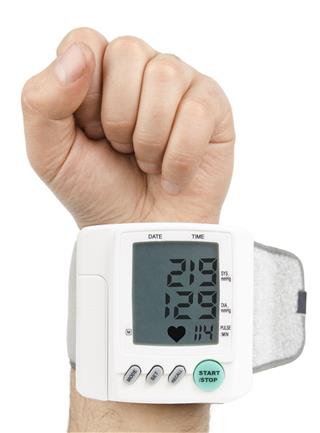
Sometimes, your blood pressure may fluctuate due to some health problems but it is not always a serious issue. This article provides some relevant information on the causes of fluctuating blood pressure. Read on…
The heart pumps blood that gets circulated to different parts of the body. Due to the pumping of the heart, the blood exerts a certain amount of pressure on the walls of the blood vessels. This pressure is termed as blood pressure. Systolic and diastolic are two different forms of blood pressure. Systolic pressure is the one which develops when the heart beats. Diastolic pressure is the one when the heart is at rest in between two beats. A mild fluctuation of about 10 percent is absolutely normal. If there is a fluctuation of blood pressure of say about 25 to 30 percent once in a while, then also you need not worry about it. It does not have any adverse effect on any of the metabolic functions of the body. However, if it becomes a chronic problem, only then it is a matter of concern.
Causes
Fluctuating blood pressure has two different modes. In one, the pressure goes up and in the other it goes down. When the fluctuation is on the higher side, it means that the heart is trying hard and putting in extra efforts to pump out the blood. Some of the factors that can be responsible for it are as follows:
Hypertension
One of the main causes behind fluctuation is hypertension. This may happen due to some undiagnosed heart disease. Other medical conditions like kidney disease, hormonal problems, pregnancy can contribute to hypertension. In some cases, hypertension runs in the family.
Sensitivity Towards Foods and Drinks
Certain foods and drinks can elevate the blood pressure suddenly. Those people who are sensitive towards salt may notice temporary rise in their blood pressure after ingestion of salty foods. If it occurs on a regular basis, then dietary changes are needed. Caffeine which happens to be a stimulant often tend to elevate the blood pressure as it causes constriction of blood vessels. Its effect is more in those people who do not drink coffee regularly and then one day they take 2-3 cups of coffee.
Stress
Stress and anxiety are the other two major causes of fluctuating blood pressure. It has been found that seventy percent of people cannot keep their blood pressure normal just because they fail to manage their stress level.
Side Effects of Medicines
There are a number of prescription or over the counter medicines that can lead to this condition. It includes birth control pills, pain relieving medicines, antidepressants, common cold medicines and so on. Illegal drugs like cocaine also have adverse effect on the blood pressure.
When the blood pressure is fluctuating towards the lower side, it could be due to low blood volume or the heart is unable to beat fast for any other reason. A few such reasons are:
- Severe dehydration where the body has lost large amount of fluid.
- Excessive loss of blood due to bleeding from a major injury. This could be due to both internal as well as external injury.
- Nutritional deficiency of some vital minerals and vitamins like iron, B-vitamins and vitamin B12 can lower production of red blood cells, an important component of blood. As a result, there is not enough blood in the circulatory system which then results in low blood pressure time and again.
- A person who is suffering from a serious infection may have fluctuations. This happens as the pathogen tries to enter the bloodstream.
Diagnosis and Treatment
In the initial stage, fluctuation does not show any symptoms. Later, the common symptoms that are observed include headache, restlessness and vertigo. The symptoms are weakness, dizziness when standing up, lightheadedness, nausea, etc. These are all general symptoms and cannot determine the specific problem. It can be detected only with the help of readings. If you monitor your blood pressure at home and you find it fluctuating, then start taking the reading at least thrice a day at three different times. When you find there is a continuous variation, you should consult your physician to find out the exact cause.
Doctors first try to identify the underlying cause and then start the treatment. They prescribe medicines that can stabilize the blood pressure. They closely monitor the pressure readings until the condition improves. Those who have any other health problem are given proper treatment suitable for that particular condition. If a person’s blood pressure is fluctuating above the normal level, then doctors often advise the patient to follow a diet that is low in sodium and high in fiber content. On the other hand, if it is fluctuating in the lower side they recommend inclusion of foods that supply high amount of iron, vitamin C, vitamin B-complex, etc.
There are non-medical reasons that can cause variations in blood pressure. Physical activity like running, a moment of extreme emotion and exposure to very high or low temperature are a few of them. In such conditions, if you take some rest and relax, blood pressure would become normal on its own after some time. To avoid any serious complications in future, one should check his or her blood pressure after regular interval of time.





